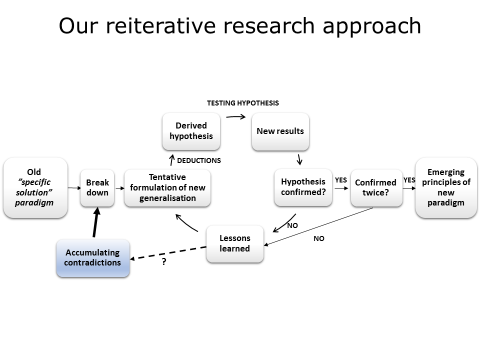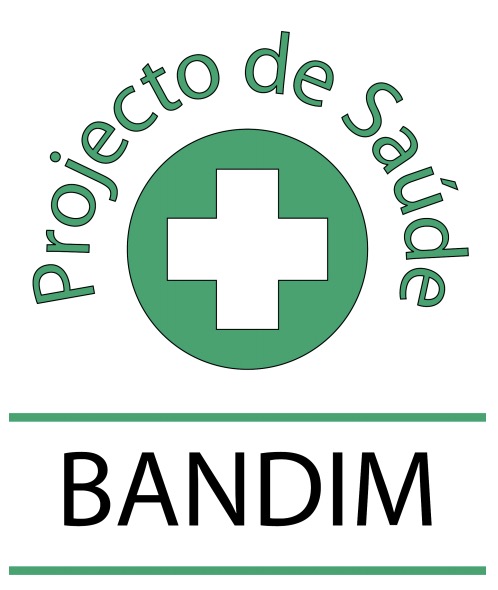Be curious. Test the assumptions. Pursue the things that do not fit
Our research method can be described as a reiterative research process as illustrated in the figure:

What kicks off are observations, which contradict current assumptions (paradigms). As an example, the current paradigm for vaccines states that vaccines only have specific effects. We observed that this paradigm was contradicted, as some vaccines had much stronger or less strong effects on overall mortality than should be expected if they only prevented the vaccine disease. These observations led to the tentative formulation of new principles, and based on these principles we make deductions and generate new hypotheses, which we then test. Sometimes we confirm our hypotheses. We have the internal rule that we want to see something at least twice (i.e. in two independent data sets) before we publish it. Provided we have confirmed a pattern twice or more, we start to incorporate it in our emerging principles of the new paradigm.
Sometimes we are not able to confirm our initial hypotheses. We then try to find out why. Theoretically, we should always go back and question whether the old paradigm – based on this new result – is a more valid explanation of the total amount of data. However, the extent of data contradicting the paradigm supports the position that the old paradigm is no longer tenable. Hence, a refutation of one of our hypotheses will usually lead to modification of the principles, to new hypotheses, which we then test. For instance, we had seen that measles vaccine had much stronger effects on overall mortality than could be explained by prevention of measles infection. Based on this and other observations we hypothesized that it would be beneficial to give measles vaccine early. We were able to confirm that it was overall beneficial, thus adding to the observations, which contradict the old paradigm of vaccines having only specific effects, and point towards new emerging principles. However, we also found that early measles vaccine was not beneficial in children who had received vitamin A at birth or who received oral polio vaccine. This did not lead us back to the old paradigm, but it led to the reformulation of our principle: measles vaccine has beneficial non-specific effects, but it may interact with neonatal vitamin A and oral polio vaccine in a manner, which is not beneficial.
Using this reiterative research process, we continuously modify our main observations.
Watch Prof. Christine Stabell Benn explain our research method (in danish)
